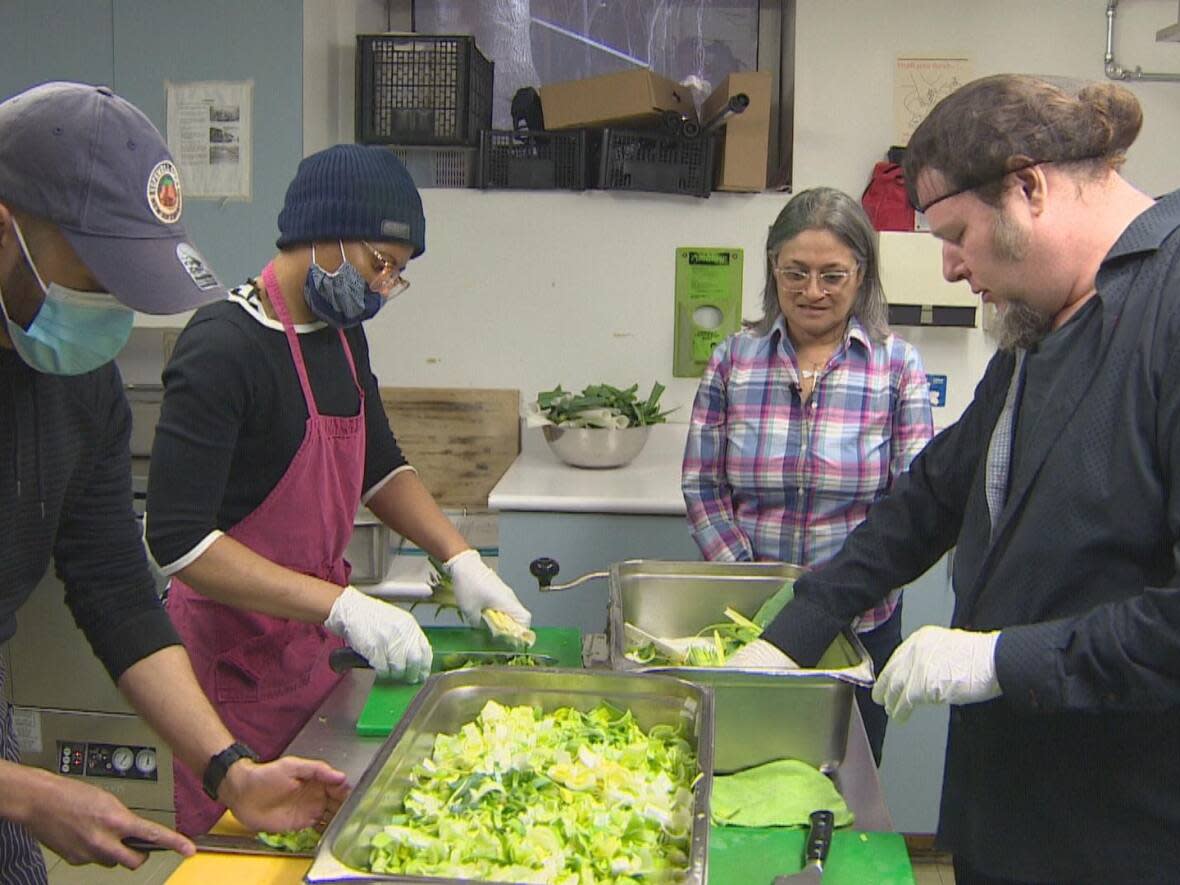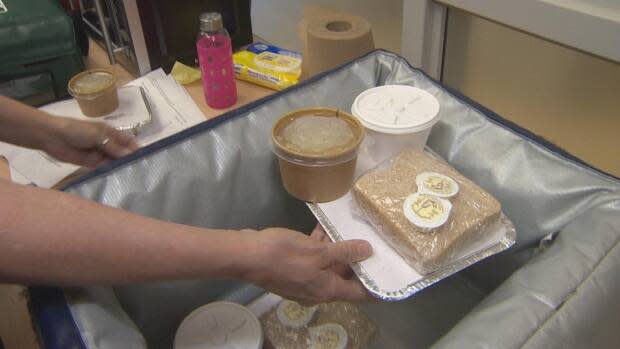Soaring food costs leave local Toronto meal delivery services struggling, many say

As food prices continue to rise across the country, many local Toronto meal delivery services say they're struggling to make ends meet.
The cost of food, along with inflation and the cost of living, has risen steadily since the beginning of the COVID-19 pandemic. The price crunch has put immense pressure on organizations that deliver meals to Torontonians in need, many of which are specifically for seniors and those recovering from hospital stays, several such organizations told CBC News.
Gurbeen Bhasin is the executive director and founder of Aangen, a community service organization based at Epiphany and St. Mark Anglican Church in the city's Parkdale neighbourhood.
"We've had to make incredible amounts of changes," Bhasin said. "We're stuck between high prices and labour costs going up."
Prior to the pandemic, the organization raised funds in part by catering. The funds helped offset the cost of providing meals to homeless shelters. The catering stopped during the pandemic, as the organization switched its focus to making affordable dehydrated meals designed to include half of a person's daily nutrients in one serving.
But Bhasin says they've had to start catering again to keep the cost of the dehydrated meals as low as possible but rising food and labour costs mean the cost of those meals has gone up too.
"Our raw material costs have jumped up by 60 per cent," she said. "We were selling meals for $5 a unit and we were literally breaking even and now … we're at $7 and $8 a unit."

Meal delivery services aren't the only ones feeling the pinch.
Last week, Toronto's Daily Bread Food Bank reported that its monthly number of clients has more than quadrupled since the pre-pandemic period. CEO Neil Hetherington said the charity now spends $1.8 million a month on food, while before the onset of COVID-19, it spent $1.5 million a year.
'The prices are way up'
Shahid Khan, the executive director of Muslim Welfare Canada, told CBC Toronto that recent months have been hard on his organization, which operates a number of food banks and delivery services in the city.
"The prices are way up, in some cases almost double," he said. "Sometimes 60 per cent and 40 per cent. For example, the rice was only $3.35, now it's $5.75. And cooking oil — very expensive — used to be only $3.50, now it's about $6."
For their seniors' meal delivery service, the meals used to cost $8. They're now up to $10, he said.
As a result, the organization has had to put a bigger emphasis on asking for donations from other organizations and the public.
"We thank our donors," Khan said. "They're really helping us."
In the city's east end, at East York Meals on Wheels, the situation isn't any better, said executive director Adriano Murarotto.

"Some of our costs have increased up to 12 per cent when you factor in the cost of food as well as the packaging," he told CBC Toronto.
Rising costs mean 'being able to serve fewer people'
Together with WoodGreen Community Services, East York Meals on Wheels has provided around 100,000 meals to seniors in the last fiscal year, but Murarotto said costs have become too high to keep up with demand.
"What that's translating into is being able to serve fewer people, offer fewer subsidies unfortunately and also looking into wait lists in the future," he said.
Murarotto worries that this will leave some of the vulnerable seniors he serves going hungry.
"We're talking about people who are coming out of hospital, who are rehabilitating at home and who don't have the opportunity to make their own meals or do grocery shopping," he said.
Murarotto added he's expecting the problems to get worse as the year goes on. That's why he's calling on the province to do more to help.
"The province has an obligation to help the community, help community agencies respond to increases in food insecurity," he said. "We're really calling on … the province of Ontario to help us meet that need."

CBC Toronto reached out to the Ministry of Food, Agriculture and Rural Affairs, the Ministry of Children, Community and Social Services, the Ministry of Finance, and the Ministry of Health, asking how the province is addressing the issue of food insecurity and what support will be provided to services like Meals on Wheels.
A spokesperson for Minister of Health Sylvia Jones told CBC News in a statement that a strong home and community care sector is "key to our plan to deliver more connected and convenient care to Ontarians, closer to home."
The province is investing a billion dollars over three years toward that plan, the statement said, including $569 million in 2023-2024.
Bhasin, on the other hand, is calling on others to help.
"It would be great if some of the grocers could possibly like support not-for-profits … with grocery gift cards or something like that," she said.
Bhasin pointed to the fact that many grocery retail chains have been raking in record profits in recent months.
"That, to me, somehow needs to be equitably distributed to the community," she said.


